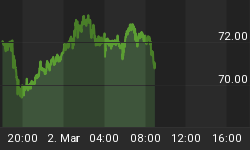The largest retailer in the world has just made a definitive move in the raging battle for dominance of the Chinese payments market, giving its ally a significant boost in a sector defined by red-hot competition.
Walmart Inc. has dropped tech giant Alibaba Group’s Alipay in favor of the WeChat mobile payment system offered by Tencent Holding Ltd in its western region stores in China, Reuters reports.
The battle lines have been drawn between Alibaba and Tencent, the two giants that dominate this market in China.
With a $460-billion market cap as of March 28, Alibaba—which owns 33 percent of Alipay--lags behind Tencent, with a market cap of 499.5 billion. But Alipay still leads the mobile payment surge.
Together, they are a $1 trillion force with which to be reckoned and they’re busy spending billions on new deals.
They two tech giants aren’t always direct competitors, though, with Alibaba focusing more on e-commerce and serving as the Chinese ‘Amazon’, while Tencent is a giant of giants in social media and gaming.
But Tencent is increasingly raising the stakes in online retail, and the new game is over domination of the mobile payments market. While Alipay is ahead right now, WeChat is not standing by idly, and the Walmart victory is a major boost.
It’s not the only way Walmart has served as a Tencent weapon against its rival. In late 2016, Walmart doubled its stake in JD.com to 10.8 percent.
At the beginning of March, Tencent’s WeChat hit a milestone when it saw its users number go past the 1 billion mark.
And it’s on track to get quite a bit bigger, with or without Walmart.
In December, the government of Guangzhou, the capital of the southern province of Guangdong, launched a pilot program what will see virtual ID cards linked to WeChat accounts of registered users. The pilot stars in the Nansha district of the city, but plans to cover the entire province—and then the entire country—this year.
Related: Silicon Valley’s Billion Dollar IPOs
WeChat is growing on China at a fast pace because it’s not just about messaging—it’s about everything from banking and gaming to dating, ordering take-out or a taxi and setting up a doctor’s appointment. In short, it’s becoming life in an app.
It’s definitely a market worth fighting for because it’s the largest mobile payments market in the world. From January to October last year, China’s mobile payments surged to record $12.8 trillion. That’s a number that dwarfs U.S. mobile payments for last year, which are said to have been around $49.3 billion, according to the South China Morning Post.
As of the first quarter of 2017, Alipay controlled about 54 percent of this market, with WeChat Pay closing in on 40 percent.

(Click to enlarge)
With Tencent closing on Alipay’s market share prowess, and Walmart helping it along, this war is about more than users, and even more than transaction fees: It’s about the business value of big data for advertising.
By David Craggen for Safehaven.com
More Top Reads From Safehaven.com:

















